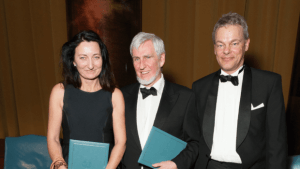Alex Rosenberg in 3:AM Magazine:

IBM’s Jeopardy winning computer Watson is a serious threat, not just to the livelihood of medical diagnosticians, but to other professionals who may find themselves going the way of welders. Besides its economic threat, the advance of AI seems to pose a cultural threat: if physical systems can do what we do without thought to give meaning to their achievements, the conscious human mind will be displaced from its unique role in the universe as a creative, responsible, rational agent.
But this worry has a more powerful basis in the Nobel Prize winning discoveries of a quartet of neuroscientists—Eric Kandel, John O’Keefe, Edvard, and May-Britt Moser. For between them they have shown that the human brain doesn’t work the way conscious experience suggests at all. Instead it operates to deliver human achievements in the way IBM’s Watson does. Thoughts with meaning have no more role in the human brain than in artificial intelligence.
Consciousness tells us that we employ a theory of mind, both to decide on our own actions and to predict and explain the behavior of others. According to this theory there have to be particular belief/desire pairings somewhere in our brains working together to bring about movements of the body, including speech and writing. Which beliefs and desires in particular? Roughly speaking it’s the contents of beliefs and desires—what they are about—that pair them up to drive our actions. The desires represent the ends, the beliefs record the available means to attain them. It is thus that we give meaning to our actions, and make sense of what others do.
More here.
